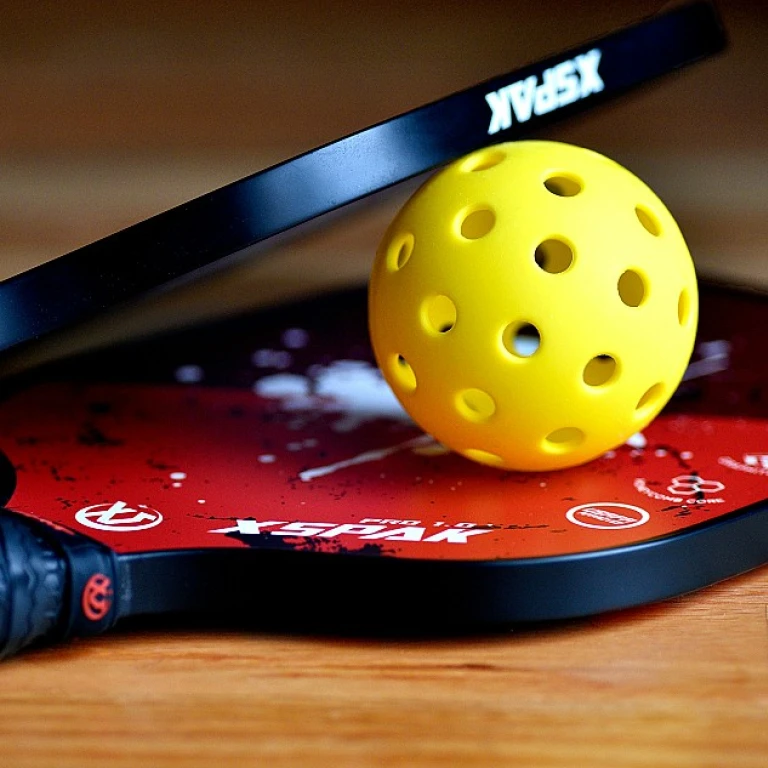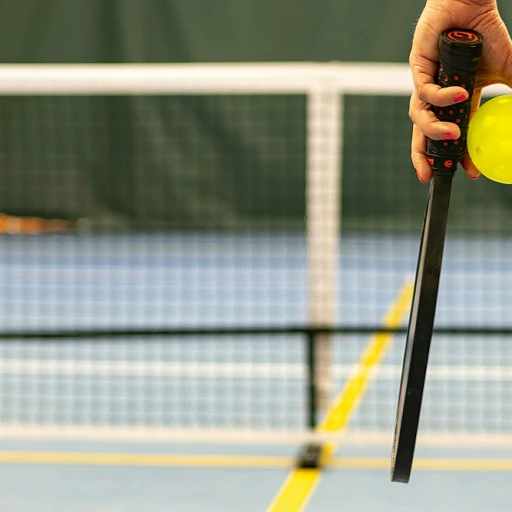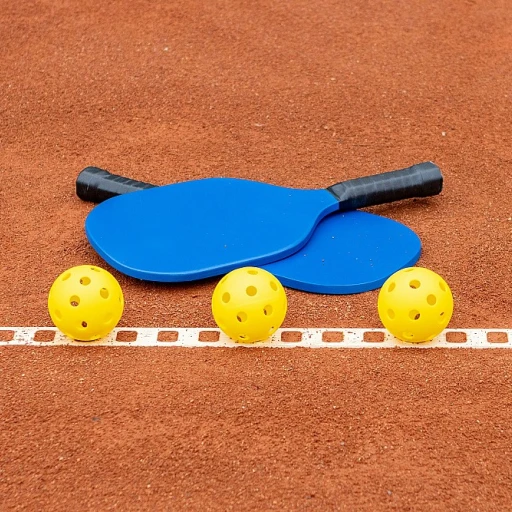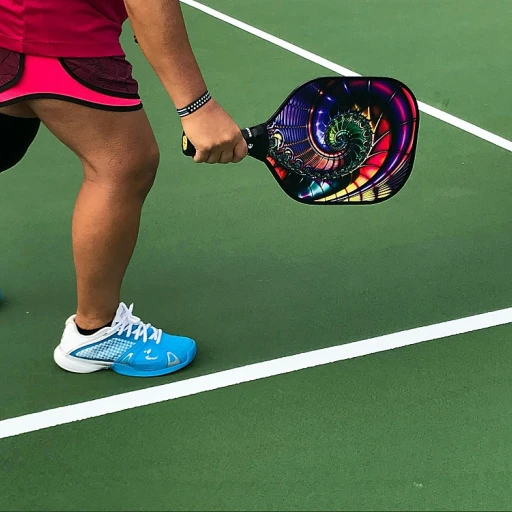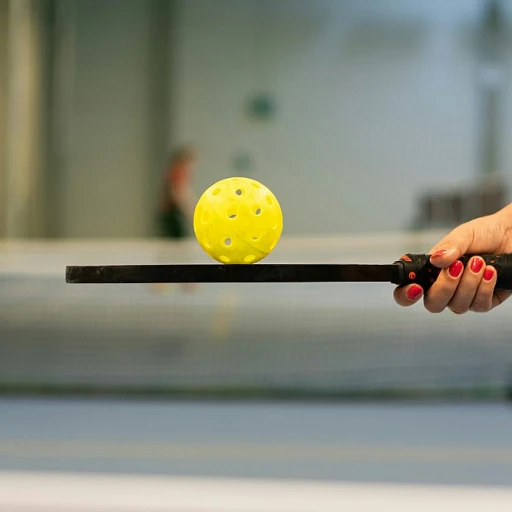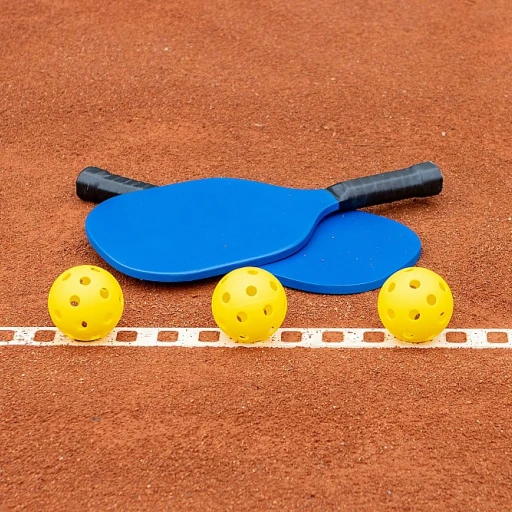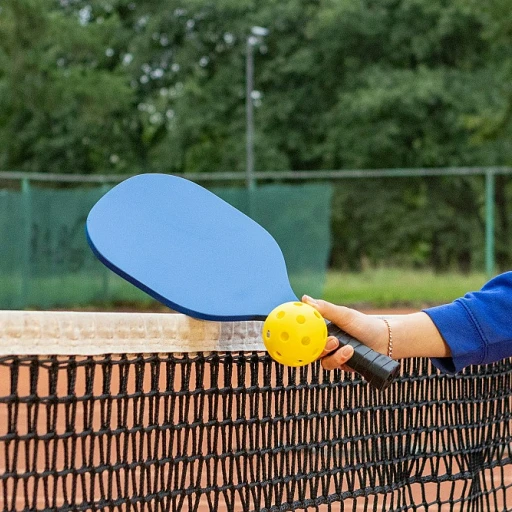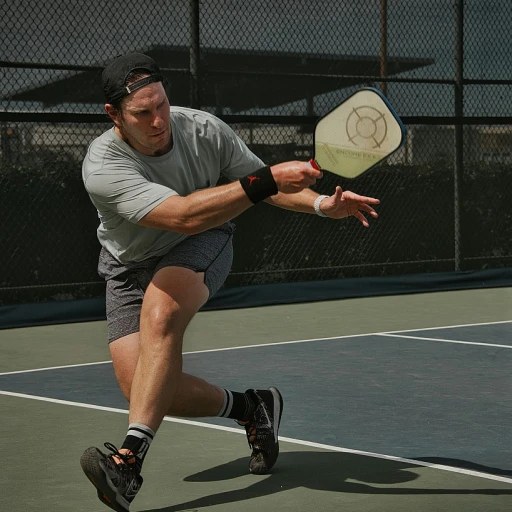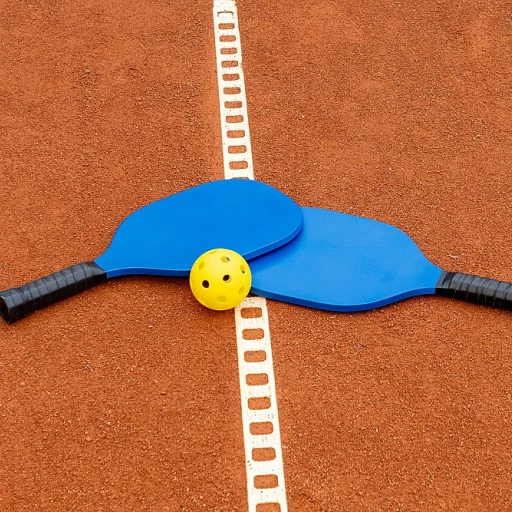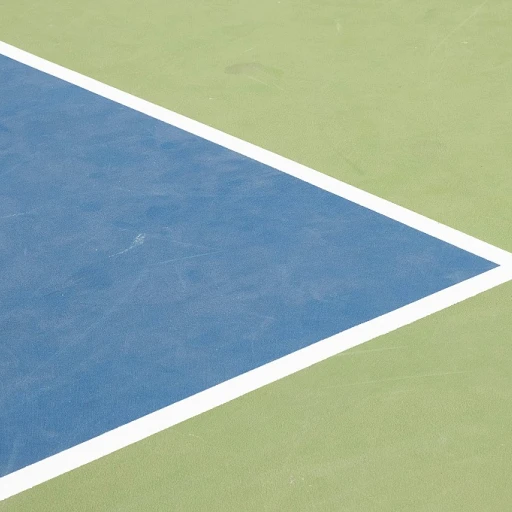
The Basics of Pickleball Ratings
Grasping the Basics of Pickleball Ratings
Alright, pickleball newbies and enthusiasts, let's break it down into simple terms. The pickleball rating is kind of like your report card on the court. It's a numerical value that reflects your skill level, your abilities, and how you stack up against other players. Whether you're smashing it in singles or mastering doubles, that little number is going to tell others all about your expertise. So, why does this matter? Well, it helps you find matches with players of a similar ability. No one wants to be in a game that's way over their head, or too easy that it's boring. This happens in all popular sports. Think of it as your buddy with the clipboard, making sure you're always in a game that challenges you just enough. Ratings rely on how consistently you nail those shots and control the game under pressure. From ball speed to your precision in placing shots, it all counts. Fair warning, not all rating systems are the same. The USA Pickleball and UTR (Universal Tennis Rating) have their systems, and you may come across others like DUPR (Dynamic Universal Pickleball Rating) along the way. It's worth checking out the different rating systems if you're thinking about competing in a tournament. Picking the right one could be the key to finding the best matches, and potentially catching the eye of local sponsors or community clubs. And if you're curious about handling scoreboards, check out this guide to keeping score – it's a great start for getting your head in the game!How Ratings Impact Your Game
Impact of Ratings on Your Pickleball Game
Ever wonder how pickleball ratings affect your game? Well, they do more than just rank you among other players. Ratings can influence your play style, tournament opportunities, and even your mental game. A higher rating can boost your confidence, but it also comes with its own set of challenges.
For starters, your pickleball rating serves as a benchmark for your skill level. It helps you understand where you stand in terms of player skill, court positioning, and shot control. Whether you're aiming to improve your singles or doubles game, knowing your rating can guide your practice sessions and match strategies.
Why Ratings Matter
Ratings are like the GPS for your pickleball journey. They not only help you track your progress but also open doors to various tournaments. In the USA, pickleball ratings are often required to enter certain competitions. The USA Pickleball Association uses these ratings to ensure fair play and balanced matches.
Moreover, ratings impact who you play against. A higher rating can place you in games with more skilled players, pushing you to elevate your game. On the flip side, a lower rating might mean facing opponents who are still honing their skills, giving you a chance to refine your shots and consistency.
Different Rating Systems
Understanding the different rating systems can be a game-changer. From UTR (Universal Tennis Rating) to DUPR (Dynamic Universal Pickleball Rating), each system has its own criteria for assessing player skill. UTR sports, for example, uses a more comprehensive approach, taking into account various aspects of your play, like medium-paced shots and court positioning.
These systems aim to provide a fair assessment of your abilities, helping you find the right level of competition. Whether it's a local match or a national tournament, knowing your rating can help you prepare better and set realistic goals.
In the end, pickleball ratings are more than just numbers. They are a reflection of your dedication, skill, and love for the game. So, keep playing, keep improving, and let your rating guide you to new heights in the sport.
Decoding the Ratings Chart
Unmasking the Clout of the Pickleball Ratings Chart
Navigating the waters of pickleball ratings can be quite the adventure! Each player's performance, consistency, and control gets reflected through their rating. Let's dig in and understand how to interpret these pickleball ratings charts to best enhance your play. The pickleball rating system ranges from beginner to pro, with beginners starting at a skill level of 1.0 and professional players reaching the coveted 5.0 level. Organizations like USA Pickleball and DUPR (Dynamic Universal Pickleball Rating) use these ratings to classify players in tournaments and other competitive settings. A player's rating incorporates a variety of skills including:- Shot Consistency: How often you can hit medium paced shots accurately
- Court Positioning: Your ability to hold and control your space on the court
- Game Strategy: How well you adapt and strategize during your play
Improving Your Pickleball Rating
Boosting Your Pickleball Skills
Improving your pickleball rating is a mix of honing your skills and understanding the game. Whether you're aiming for a higher rating in singles or doubles, consistent practice and skill assessment are key. Here’s how you can step up your game:
- Focus on Consistency: Consistency is vital in pickleball. It’s not just about hitting the ball hard but maintaining control over your shots. Work on your medium-paced shots to ensure they land accurately on the court.
- Enhance Court Positioning: Understanding where to position yourself during a game can significantly impact your performance. Proper court positioning allows you to respond better to your opponent's shots, giving you an edge in play.
- Refine Your Skills: Regularly practicing different shots and strategies will improve your overall skill level. Whether it’s a dink, volley, or serve, mastering these can elevate your game and your player rating.
- Participate in Tournaments: Engaging in tournaments not only gives you experience but also helps in assessing your skill level against other players. This is a great way to boost your rating through competitive play.
- Seek Feedback: Utilize assessment sheets or seek feedback from experienced players or coaches. They can provide valuable insights into areas where you can improve.
Understanding the Rating Systems
There are different rating systems like UTR, DUPR, and USA Pickleball that assess player skill. Familiarizing yourself with these can help you understand where you stand and what areas need improvement. For instance, the UTR sports rating system considers your performance across various matches, providing a comprehensive view of your abilities.
Remember, improving your pickleball rating is a continuous process. Stay dedicated, keep practicing, and you’ll see your player rating climb over time. For more tips on improving your game, you can explore detailed guides and resources available online.
Common Misconceptions About Ratings
Misunderstandings About Pickleball Ratings
Pickleball ratings can sometimes seem like a puzzle, especially when players are trying to figure out where they stand. Here are some common misconceptions that can trip you up:
- It's All About Winning: Many players think that winning games is the only way to boost their rating. While winning certainly helps, the rating system also considers other factors like consistency, control, and court positioning. Your skill level isn't just about the score; it's about how you play the game.
- One Rating Fits All: There's a belief that a single rating applies to all forms of play, whether singles or doubles. However, your performance in singles might not directly translate to doubles. Each format requires different skills, and your rating may vary between them.
- Ratings Are Permanent: Some players think their rating is set in stone. In reality, ratings are dynamic and can change as your skills improve or if you have a streak of challenging games. Regular play and skill assessment can help you move up the ladder.
- Comparing Ratings Across Systems: With multiple systems like UTR, DUPR, and USA Pickleball, players often try to compare ratings across these platforms. It's important to understand that each system has its own criteria, and direct comparisons might not always be accurate.
- Higher Ratings Mean Better Players: While a higher rating often indicates a higher skill level, it's not the sole measure of a player's ability. Some players may excel in certain shots or have superior court strategy, which might not always reflect in their rating.
Understanding these misconceptions can help you focus on improving your game rather than getting caught up in the numbers. Remember, the rating is just a part of the pickleball journey. It's about enjoying the game, learning new skills, and playing with fellow enthusiasts.
The Future of Pickleball Ratings
Looking Ahead: The Evolution of Pickleball Ratings
The pickleball rating system is on the brink of exciting changes that could redefine how players assess their skills and compete. As the sport gains traction, organizations like USA Pickleball are exploring new ways to make ratings more accurate and reflective of a player's true abilities. This shift is crucial as more players join the pickleball community, eager to test their skills on the court.
One potential development is the integration of technology in tracking and analyzing player performance. With advanced data collection tools, players could soon have access to detailed stats about their game, from shot accuracy to court positioning. This information can help players understand their strengths and areas for improvement, leading to a more personalized skill assessment.
Another exciting prospect is the potential for a unified rating system that aligns with other sports, like the UTR rating used in tennis. Such a system could offer a more standardized way to compare skill levels across different regions and tournaments, making it easier for players to gauge where they stand in the broader sports community.
Moreover, as pickleball continues to grow, there may be more opportunities for players to participate in singles and doubles tournaments, further refining their skills and boosting their ratings. The emphasis on consistency, control, and strategic play will likely become more pronounced, encouraging players to develop a well-rounded game.
In conclusion, the future of pickleball ratings is bright, with innovations on the horizon that promise to enhance the player experience. Whether you're a seasoned pro or just starting, these changes will offer new ways to engage with the sport and improve your game. Stay tuned as pickleball continues to evolve and captivate players worldwide.

